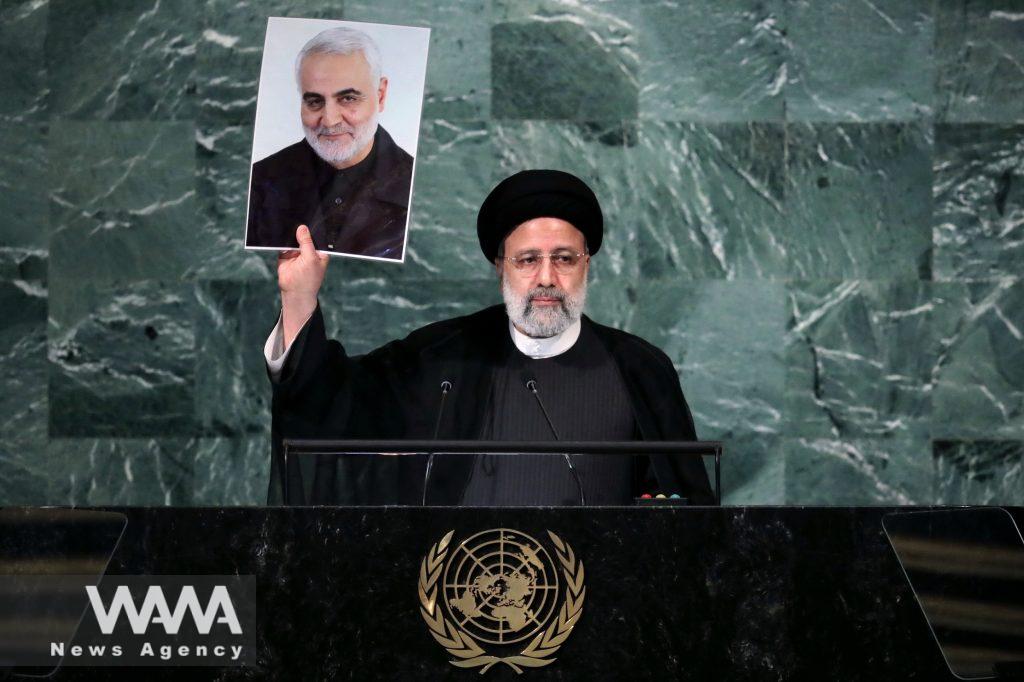Does the President of Iran Tell Bold-Faced Lies?
WANA (Jan 25) – Middle East experts have criticized Lester Holt for failing to challenge the “Bold-Faced Lies” of Iran’s president.
Discussions about accusations against Iran in security cases have always been a hot topic among international media and analysts. These narratives often face two significant challenges: the lack of reliable evidence and the instrumental use of security concepts for political purposes. Allegations labeled as the “blatant lies” of Iran’s president require a more thorough examination, with an impartial approach to assess the accuracy of these claims.
Middle East experts accused Lester Holt of giving Iranian President Masoud Pezeshkian a “free pass” during an interview, where he allegedly failed to confront Pezeshkian’s denial of Iran’s involvement in plotting the assassination of Donald Trump.

Pezeshkian: Iran Has “Never” Planned the Assassination of Donald Trump
WANA (Jan 15) – In an exclusive interview with NBC News, Iran’s President, Massoud Pezeshkian, stated that Iran is fundamentally ready for dialogue with a potential second term of Donald Trump’s administration. He emphasized, however, the importance of honoring commitments made during such negotiations, adding that Iran has “never” planned the assassination of Donald Trump […]
The Iranian president responded to these accusations by stating: “The Islamic Republic of Iran has never been involved in any terrorist plots and considers these accusations an attempt to spread Iranophobia.”
Critics, however, pointed to a U.S. Department of Justice report naming an Iranian citizen, Farhad Shakeri, who allegedly acted on the orders of the IRGC to plan Trump’s assassination. But does this report alone suffice as evidence to indict an entire country?
A judicial report, such as that from the U.S. Department of Justice, must be backed by stronger evidence. Alleging crimes against an individual or entity based solely on preliminary findings is insufficient. Even under international law, individual actions cannot directly implicate governments unless clear and transparent evidence of official state involvement is presented. In this case, the U.S. Department of Justice has not provided any proof that the individual acted under the direct coordination or orders of the Iranian government.

Claim of an Attempted Assassination on Trump and Aggressive Policies Towards Iran
WANA (Nov 12) – Is the new American accusation against Iran simply another tactic to bolster its influence in the region, or is it part of a more complex scenario? This question occupies the minds of many political analysts and ordinary people today. In the latest accusation, the U.S. Department of Justice claims that […]
In November 2024, following the U.S. prosecution of an IRGC commander accused of ordering Trump’s assassination, Iran’s Ministry of Foreign Affairs spokesperson stated: “These accusations are baseless, and the Islamic Republic of Iran has no role in such conspiracies.”
Jason Brodsky, policy director at United Against Nuclear Iran, accused Holt of providing Pezeshkian with an “unchallenged platform,” allowing him to allegedly mislead American public opinion.
But does a journalist’s role necessarily mean confronting or judging their interviewee? When interviewing world leaders, journalists sometimes adopt a non-confrontational approach to prevent escalation and facilitate the exchange of information.

Lester Holt in an interview with Iranian President Masoud Pezeshkian / WANA News Agency
Moreover, international journalists are not expected to act as interrogators or judges. Their role is to provide a platform for dialogue and transparent communication. In this case, the journalist merely facilitated the discussion, leaving the final judgment to the audience and analysts.
Emily Schrader, an Israeli journalist and human rights activist, criticized the interview by referencing an animation published on Iran’s Supreme Leader’s website in 2022, depicting an Iranian drone targeting Trump. The animation included the message: “The murderer of Soleimani and those who ordered his assassination must be punished.”
Brodsky remarked: “I would have shown him that video and asked, ‘What do you think about this? What is your response?’”
While the animation published on Iran’s leader’s website is symbolically significant, it cannot serve as evidence of an actual plan for a terrorist act. Media content in various countries is often released for propaganda purposes and cannot be equated with operational directives or executable plans.
For instance, similar videos have been released by Western and Israeli media, simulating actions against leaders of other nations. However, such content cannot be interpreted as representing a country’s actual intentions.
Trump had ordered the January 3, 2020 strike that killed Qassem Soleimani, commander of Iran’s Quds Force, in Baghdad.

Iran’s President Seyed Ebrahim Raisi holds up a picture of Quds Force Commander General Qassem Soleimani, who was assassinated in a U.S. attack, as he addresses the 77th Session of the United Nations General Assembly at U.N. Headquarters in New York City, U.S., September 21, 2022. WANA (West Asia News Agency) / President office
This act, described by the then-U.S. administration as a preemptive measure, sparked significant international criticism.
The assassination of a commander of an official military force, even amidst political tensions, raises questions under international law. Many experts have described the U.S. strike as a blatant violation of international norms, and it cannot serve as a precedent for legitimizing similar actions by other states. If the actions of one party are to be evaluated as legal or justified, they must undergo rigorous legal and historical analysis.

A sentence by Martyr Soleimani in Hebrew: “Every night, thinking about defeating enemies.”
In response to Trump’s direct order for the strike, Iran’s government issued an official statement: “From the perspective of the Islamic Republic of Iran, Trump is a criminal who must be tried and punished in court for ordering the assassination of General Qassem Soleimani. Iran has chosen legal channels to hold him accountable.”
Global politics and security should not become platforms for media and propaganda exploitation. To prevent further tensions, credible evidence and transparency from all parties are essential.













